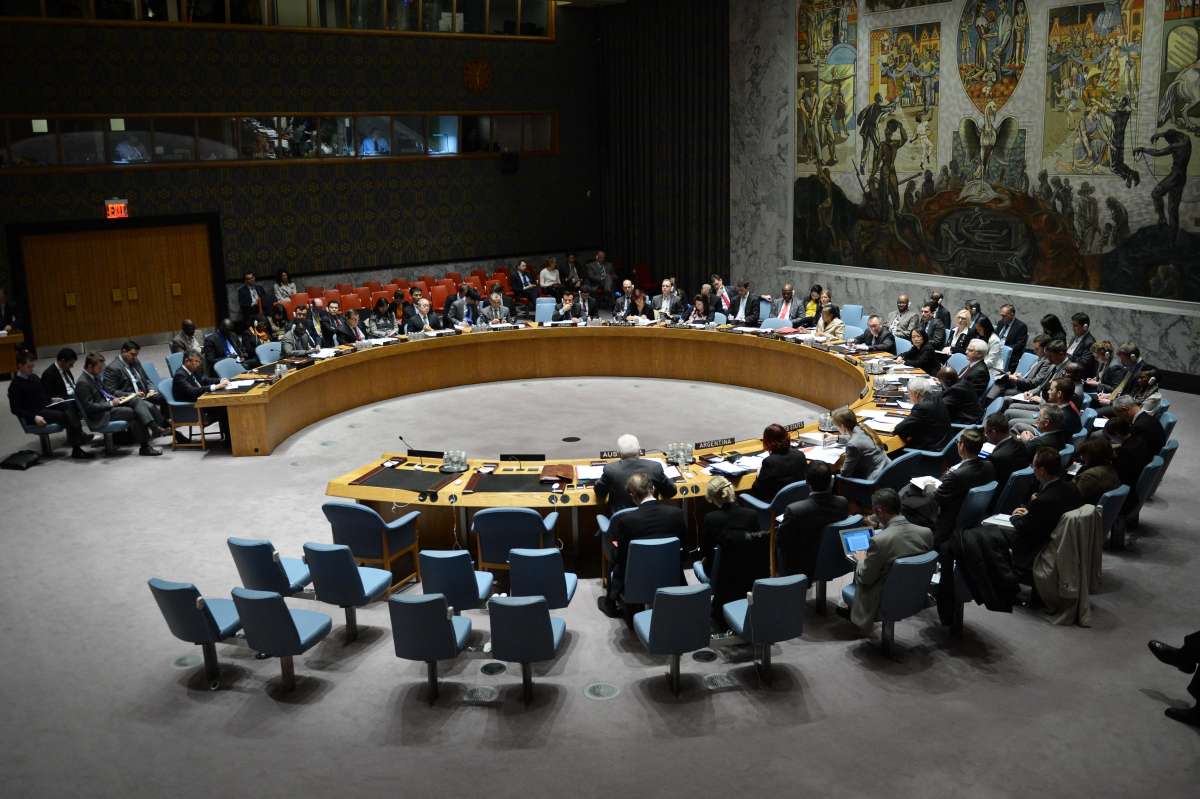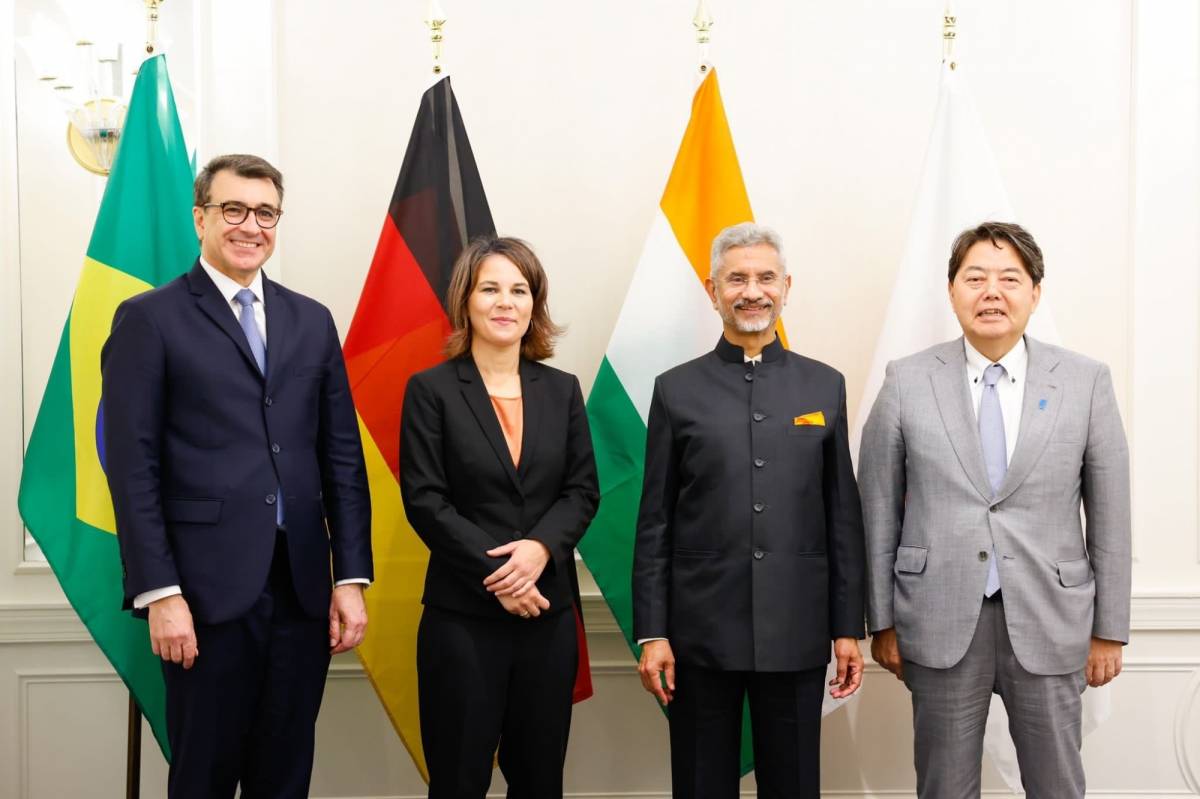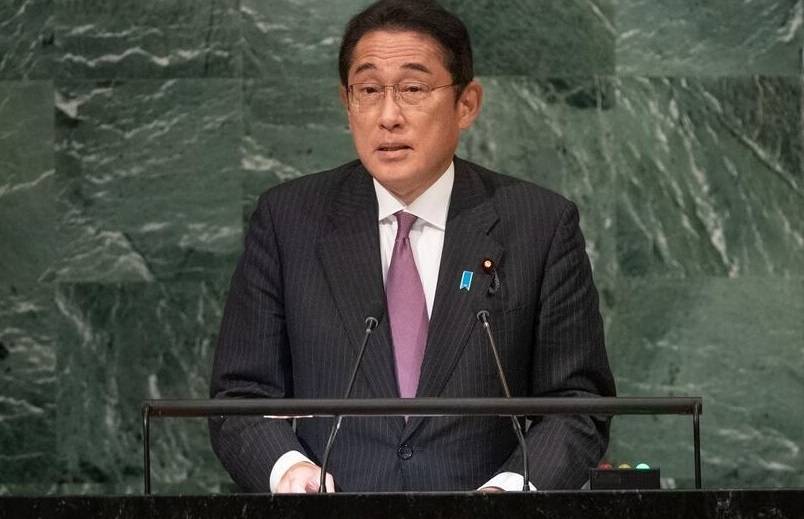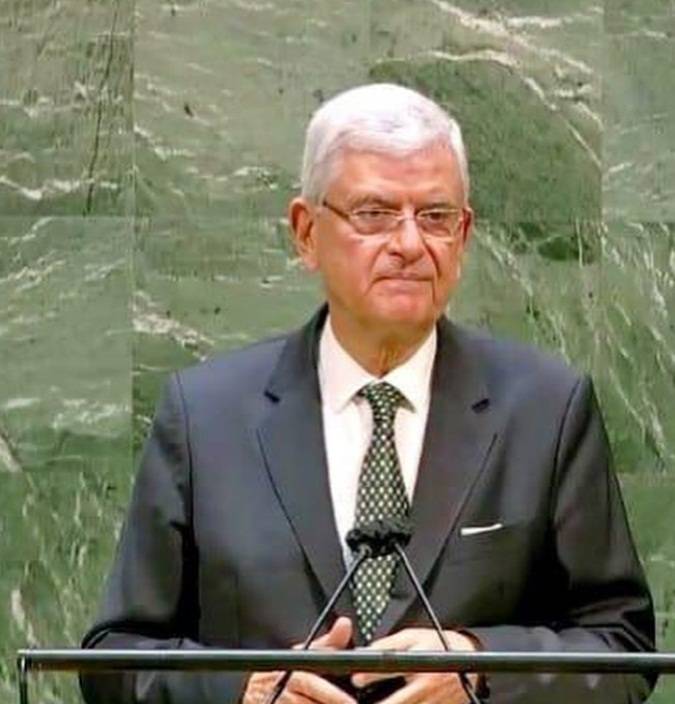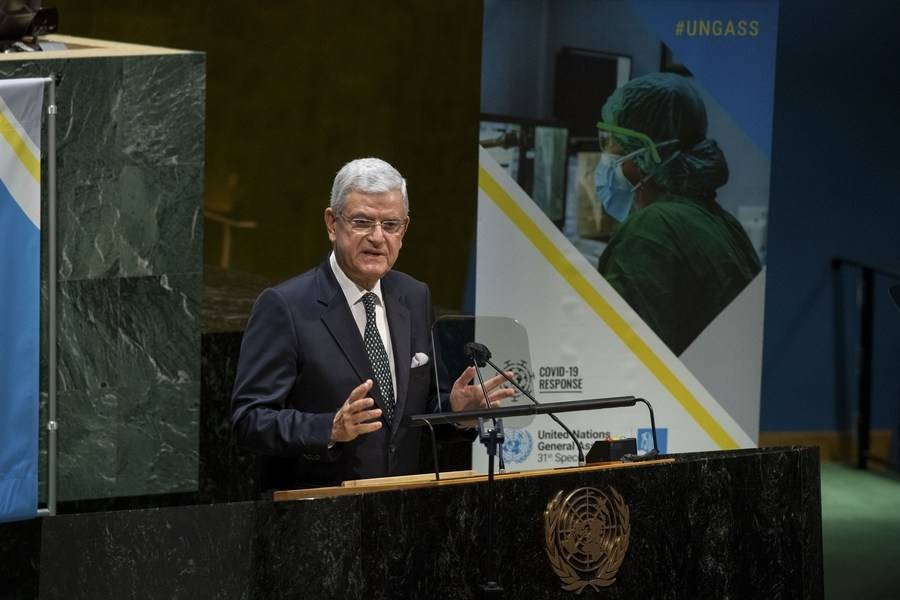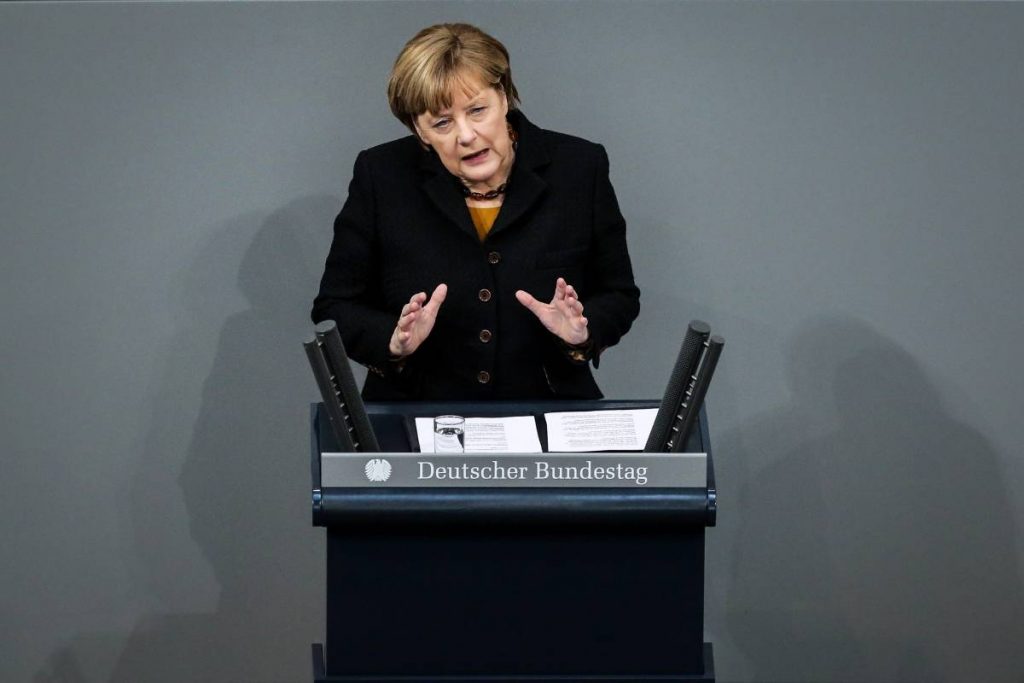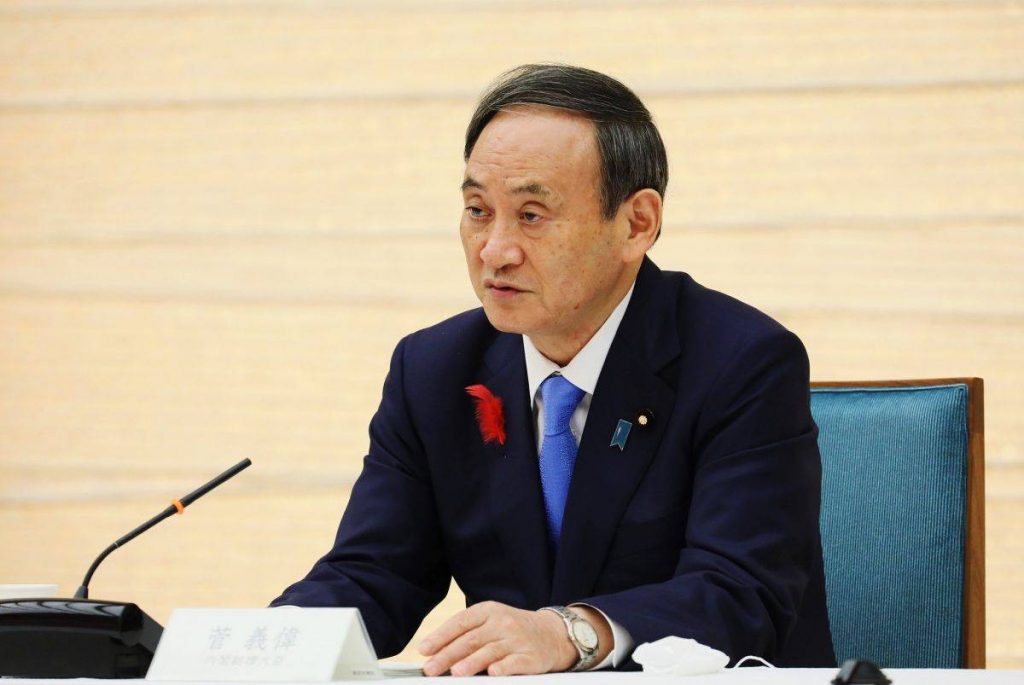The Ministers emphasized the need to expand both permanent and non-permanent UNSC membership for enhanced representation, legitimacy, and effectiveness…reports Asian Lite News
The Foreign Ministers of G4 countries — India, Brazil, Germany and Japan — met on the margins of the 78th Session of the United Nations General Assembly and discussed the reformation of the UN Security Council.
Foreign Minister of Brazil Mauro Vieira, Federal Foreign Minister of Germany Annalena Baerbock, Minister for Foreign Affairs of Japan Yoko Kamikawa, and Ministry of External Affairs, Secretary (West), Sanjay Verma discussed the state of play of the negotiations for the reforms.
“The Ministers underscored that multilateralism is under significant strain due to multiple and complex crises. Moreover, they concurred that the UN Security Council’s inability to effectively and timely address contemporary global challenges reinforces the urgent need for its comprehensive reform so that it better reflects contemporary geopolitical realities,” the joint statement read.
The Ministers reiterated that the expansion of the UNSC in both permanent and non-permanent categories of membership is essential to make the body more representative, legitimate, effective and efficient.
They agreed on the need to enhance the role and participation of developing countries in the Security Council, both in the permanent and non-permanent categories of members.
Recognizing the historical injustice with regard to representation in the Security Council, they underlined the importance of increasing participation of under-represented and unrepresented groups and regions, such as Africa and Latin America and the Caribbean.
“In this context, the G4 Ministers reaffirmed their strong support to the Common African Position (CAP) and emphasized that Africa needs to be represented in both the permanent and non-permanent categories of membership of a reformed and expanded Security Council, in line with the CAP as enshrined in the Ezulwini Consensus and the Sirte Declaration,” the joint statement further stated.
The G4 Foreign Ministers also voiced strong concern over the persistent absence of meaningful progress on Security Council reform in the IGN (Intergovernmental Negotiations framework).
“In this context, the Ministers noted the Co-Chair’s proposal for a structured dialogue on individual models proposed by States and Groups and encourage renewed efforts by the PGA and the Co-Chairs to commence text-based negotiations without any further delay in the IGN” the statement read.
“They stressed, in doing so, the importance of adhering to the decision-making requirements and working methods laid out in the Charter of the United Nations and the rules and procedures of the General Assembly” it added.
“They reiterated their commitment to address the issue in the upcoming 78th Session of the UNGA and agreed to intensify dialogue with all Member States, with an aim to achieve concrete outcomes within a fixed time frame,” the statement further said.
The G4 also agreed on the need to enhance the role and participation of G4 members as major contributing countries to the maintenance of international peace and security in the Security Council.
The G4 Ministers reiterated their support for each other’s candidatures as aspiring new permanent members in a reformed Security Council, which they aimed to achieve through an open, transparent and democratic process, consistent with the UN Charter.
“The Ministers stressed that the future of international governance structures rest on their capacity to adapt and remain fit for purpose. The longer it takes to reform the UN Security Council, the more its effectiveness will be called into question,” the joint statement added. (ANI)

